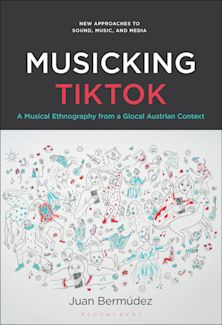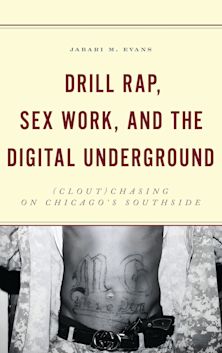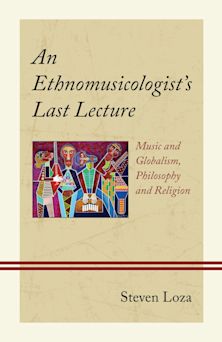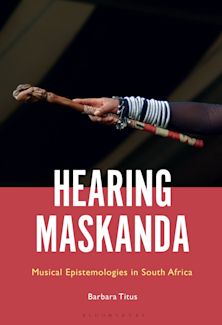- Home
- ACADEMIC
- Music & Sound Studies
- Ethnomusicology
- Historical Dictionary of Russian Music
Historical Dictionary of Russian Music
You must sign in to add this item to your wishlist. Please sign in or create an account
Description
Russian music today has a firm hold around the world in the repertoire of opera houses, ballet companies, and orchestras. The music of Pyotr Tchaikovsky, Nikolay Rimsky-Korsakov, Sergey Rachmaninov, Sergey Prokofiev, and Dmitri Shostakovich is very much today’s lingua franca both in the concert hall and on the soundtracks of international blockbusters from Hollywood. Meanwhile the innovations of Modest Mussorgsky, Alexander Borodin, and Igor Stravinsky have played their crucial role in the development of Western music in the last century, influencing the work of virtually every notable composer of the last century.
The Historical Dictionary of Russian Music covers the history of Russian music starting from the earliest archaeological discoveries to the present, including folk music, sacred music, and secular art music. The book contains a chronology, an introductory essay, an extensive bibliography, and over 500 cross-referenced dictionary entries on every major composer in Russia’s history, as well as several leading composers of today, such as Sofia Gubaidulina, Rodion Shchedrin, Leonid Desyatnikov, Elena Firsova, and Pavel Karmanov. It also includes the patrons and institutions that commissioned works by those composers and the choreographers and dancers who helped shape the great ballet masterpieces. This book is an excellent access point for students, researchers, and anyone wanting to know more about Russian music.
Table of Contents
Acknowledgments
Reader’s Note
Acronyms and Abbreviations
Chronology
Introduction
The Dictionary
Bibliography
About the Author
Product details
| Published | 08 Mar 2012 |
|---|---|
| Format | Ebook (PDF) |
| Edition | 1st |
| Extent | 458 |
| ISBN | 9798216208082 |
| Imprint | Scarecrow Press |
| Series | Historical Dictionaries of Literature and the Arts |
| Publisher | Bloomsbury Publishing |
About the contributors
Reviews
-
Jaffé (Sergey Prokofiev) opens this comprehensive subject guide with a chronology listing salient musical and political events from 5500 B.C.E., when instruments were discovered in Karelia, to 2011, with the centenary concert of Pyatnitsky’s Choir. Following this is an engaging 31-page historical overview, easily navigated by helpful period-specific subheadings. More than 500 concise entries then profile historical and contemporary composers, movements, performance venues, operas, instruments, and other terms relevant to or significantly shaping Russian musical history. A fabulous 68-page, thematically organized bibliography rounds out this fundamental reference.
VERDICT A wonderful complement to the 36 essays comprising Richard Taruskin’s On Russian Music (Univ. of California Pr., 2010).Library Journal
-
[A] superbly produced dictionary, which also has an excellent chronology...Nobody with special interest in this subject should hesitate.
Classical Music
-
As an up-to-date, English-language encapsulation of its subject, this well-constructed dictionary fills an important niche. Its coverage is strongly oriented toward the biographical, with the main focus on classical composers of the 19th and 20th centuries. The 500 articles are rich with cross-references, and Jaffé, the former reviews editor of BBC Music Magazine, provides capable guidance through the thickets of competing systems of Cyrillic-to-English transliteration. A fine bibliography offers added value. Although obviously selective by design, the topical choices are occasionally difficult to fathom; e.g., Robert Schumann is included as a formative influence on Russian composers, but Franz Schubert is not. With the understanding that the scope of Jaffé's Russian Music is limited almost exclusively to Russian classical music, libraries and readers across the spectrum will welcome this book. Summing Up: Recommended.
Choice Reviews
-
Daniel Jaffé’s , Historical Dictionary of Russian Music will serve most students and loversof Russian music very well. It strikesa good balance between individualsand institutions, with a sprinklingof events, concepts, musical genresand works.
BBC Music Magazine
-
The Historical Dictionary of Russian Music includes coverage from the church and folk music of the Kievan Rus, in the tenth century, to the present. The author provides entries are for composers, conductors, and soloists, including Russians, those who emigrated (e.g., Ashkenazy, Koussevitzky), and non-Russians (e.g., Hector Berlioz, John Field) who influenced music in this country, or performed in its halls. Jaffe also identifies opera and concert halls, conservatories, musical instruments, ensembles, publishing companies and organizations, general subjects that influenced music (e.g., cultural revolution, education), styles (Socialist realism), forms and genres (ballet, church music), and important works (Ba-La-F Quartet; Petrushka)....It is recommended for academic libraries.
American Reference Books Annual
-
This is another volume in an excellent series covering a range of literary and arts subjects. The focus here is on Russian music offering the reader digestible chunks of information on all aspects of this wide subject...The bibliography is clear and thorough, usefully divided into subjects that are listed at the beginning, so that one can research within topics as varied as individual composers, other artists, historical periods and movements, dramatic arts, patrons and publishers and performance venues.
Reference Reviews



































